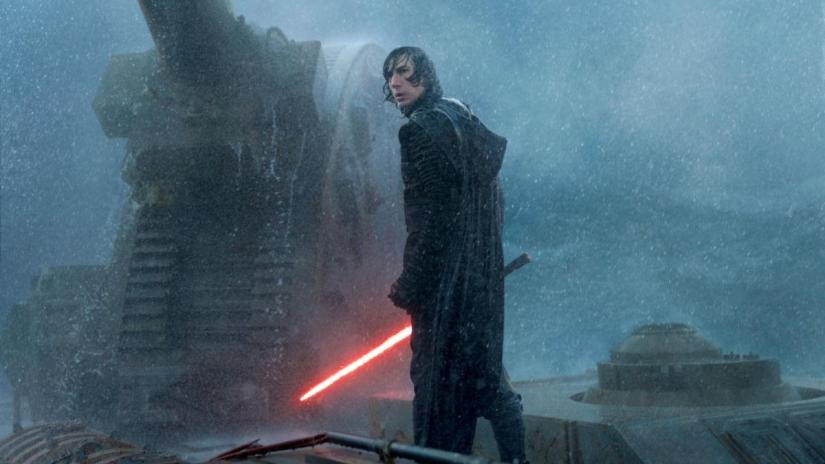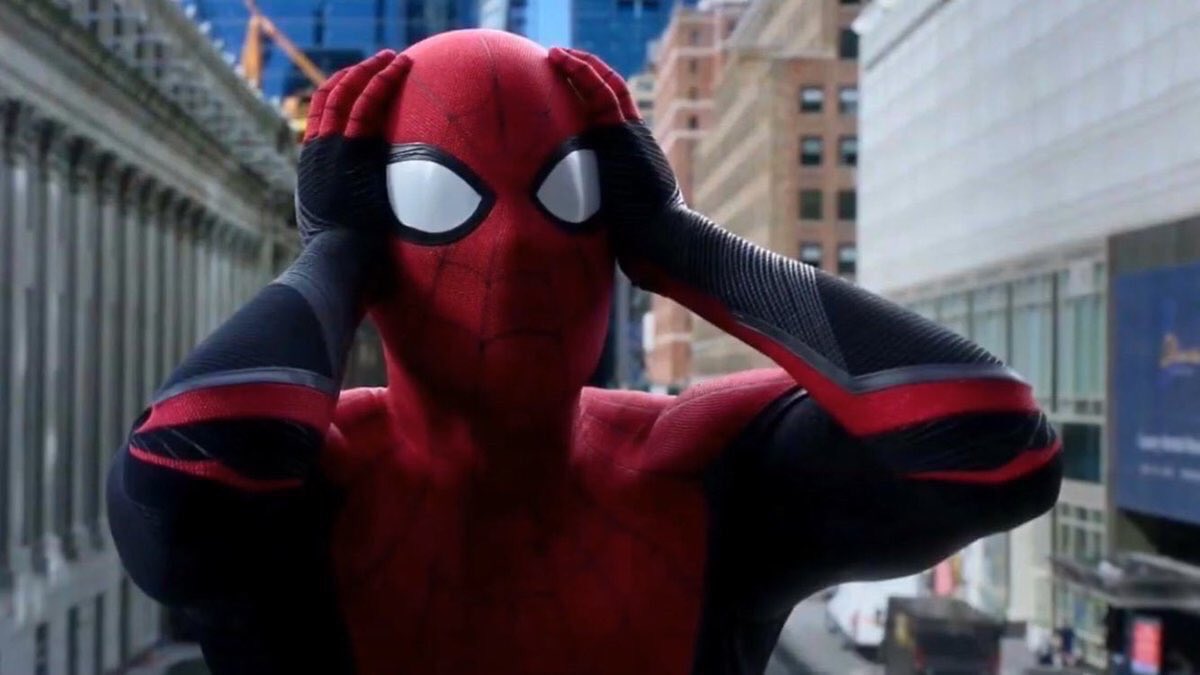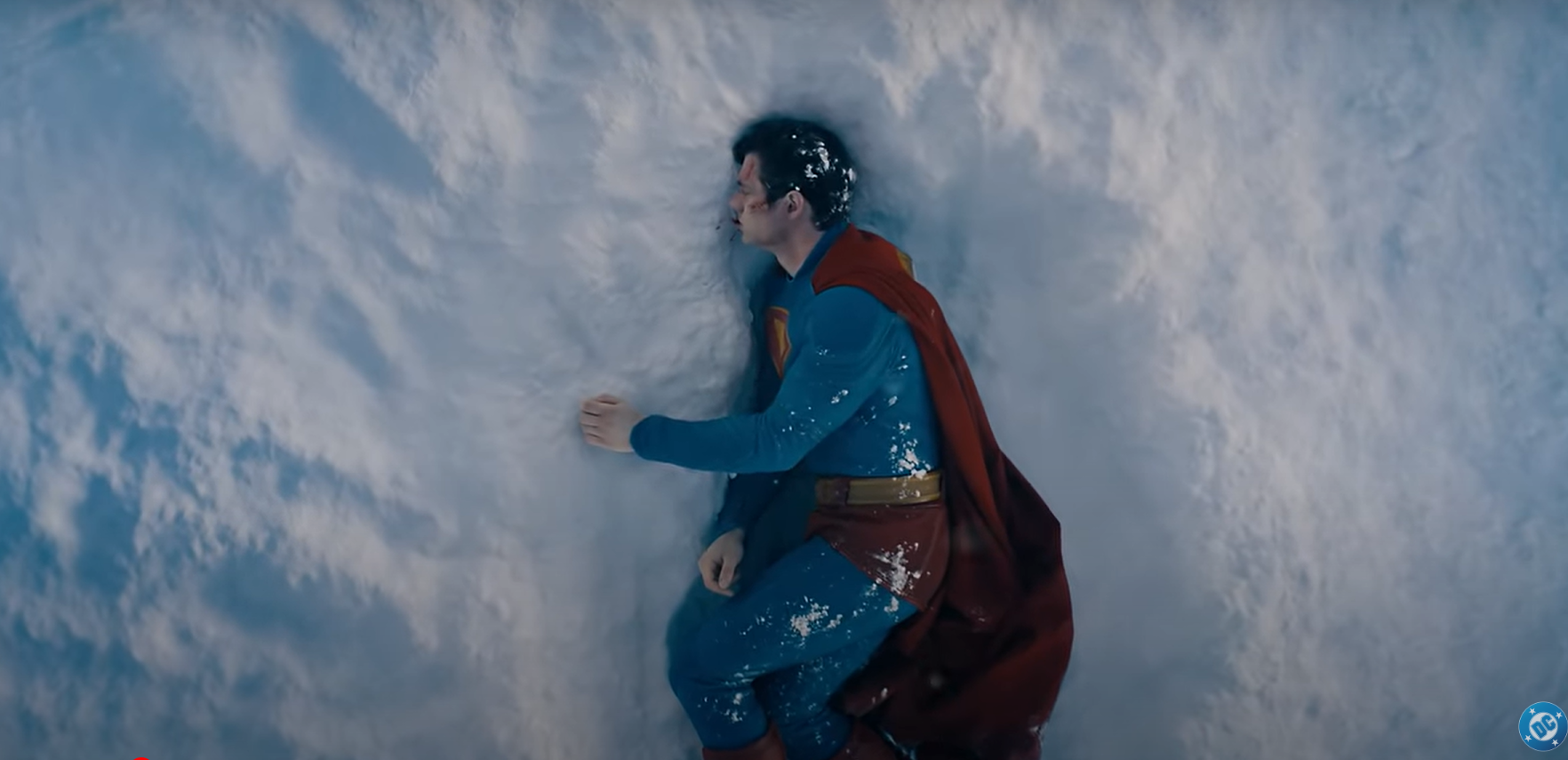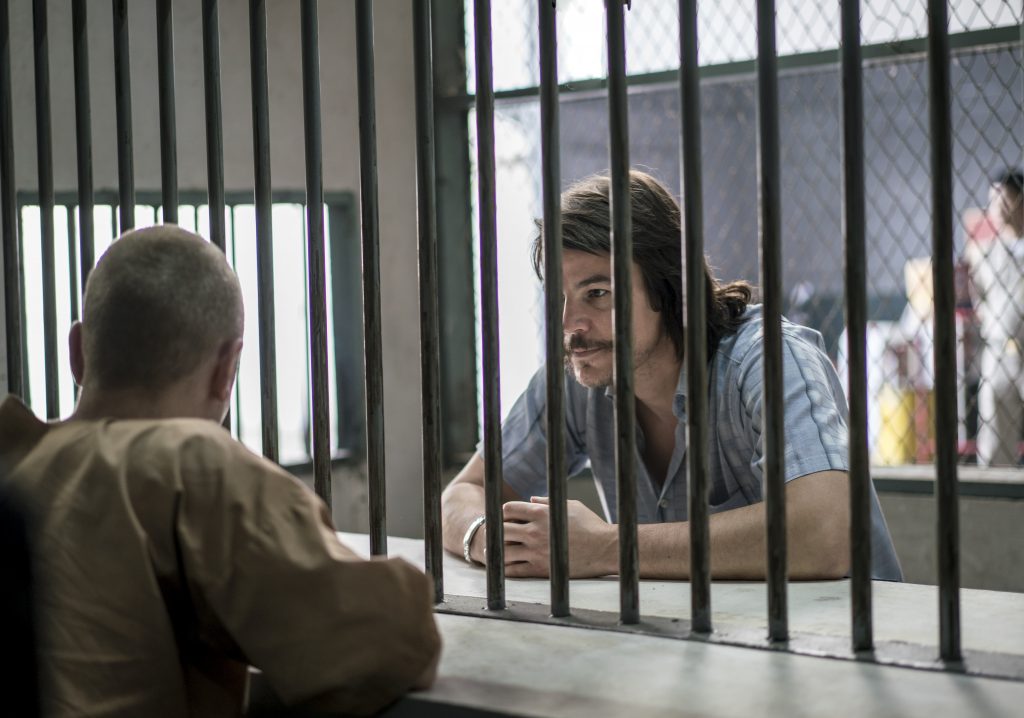
Daniel Roby had a specific goal in mind for Most Wanted. He wanted the film to reflect the real lives of journalist Victor Malarek and the central victim Alain Olivier as much as possible.
The director cast a French-Canadian for the lead role. It was filmed in British Colombia and Thailand. He even got the real people and Thai prison consultants to advise the production through the whole process.
Most Wanted stars Antoine Olivier Pilon, Jim Gaffigan, Josh Hartnett, and Amanda Crew. Roby directed and wrote the screenplay.
Here’s the official synopsis:
Inspired by the gripping true story, an investigative journalist unravels a twisted case of entrapment wherein a guy from the wrong side of the tracks, Daniel, is forced into a dangerous drug deal against his will. He ended up sentenced to 100 years in a Thai prison. As Daniel endures torture and abuse, the journalist must track down the shady undercover cops benefitting off the conspiracy, while also fighting for Daniel’s freedom.
ALSO READ: Most Wanted Clip Shows Josh Hartnett As Journalist Victor Malarek
LRM Online spoke to director Daniel Roby over the phone last week. We talked about Thailand, keeping everything real and the cast makeup of the film.
Saban Films releases Most Wanted tomorrow in select theaters and On Demand.
Read our exclusive interview below and let us know what you think.
Gig Patta: Hi, Daniel. How’s it going with you?
Daniel Roby: Very good. I’m in Montreal. We released the movie last week here already. I’ve been doing trash for two weeks already. [Laughs]
Gig Patta: Wow! You’re in Montreal. I’m going to practice my French a little bit. Bonjour! Comment allez-vous? (Translation: Hello! How are you?)
Daniel Roby: Bonjour! Bon! Et toi? (Translation: Hello! Good. And you?)
Gig Patta: Com si, com sa. (Translation: So-so.).
Daniel Roby: Com si, com sa? [Laughs]
Gig Patta: En anglais, s’il vous plait. (Translation: In English. Please.) I don’t speak French too much. Sorry, I like to say that to French people.
Daniel Roby: [Laughst] I get it.
Gig Patta: You know, it’s funny. I could say it in Thai too. Sawadikap! Sby Di Lu Bloa? (Translation: Hello! How are you doing?)
Daniel Roby: Sawadikap! [Laughs] Khob khun krab. (Translation: Thank you!) So you’ve been to Thailand?
Gig Patta: I was born in Thailand.
Daniel Roby: You were born in Thailand? Wow!
Gig Patta: I’m Thai. You’re probably surprised because you probably don’t have many Thai people interviewing you for this movie.
Daniel Roby: No, it’s the first time. It must be so strange then for you to see all these Thai actors in this movie, the part of the film—particularly the pieces that were happening in Bangkok.
ALSO READ: Inmate #1: The Rise of Danny Trejo: What Director Brett Harvey Hopes We All Learn From His Film [LRM Exclusive]
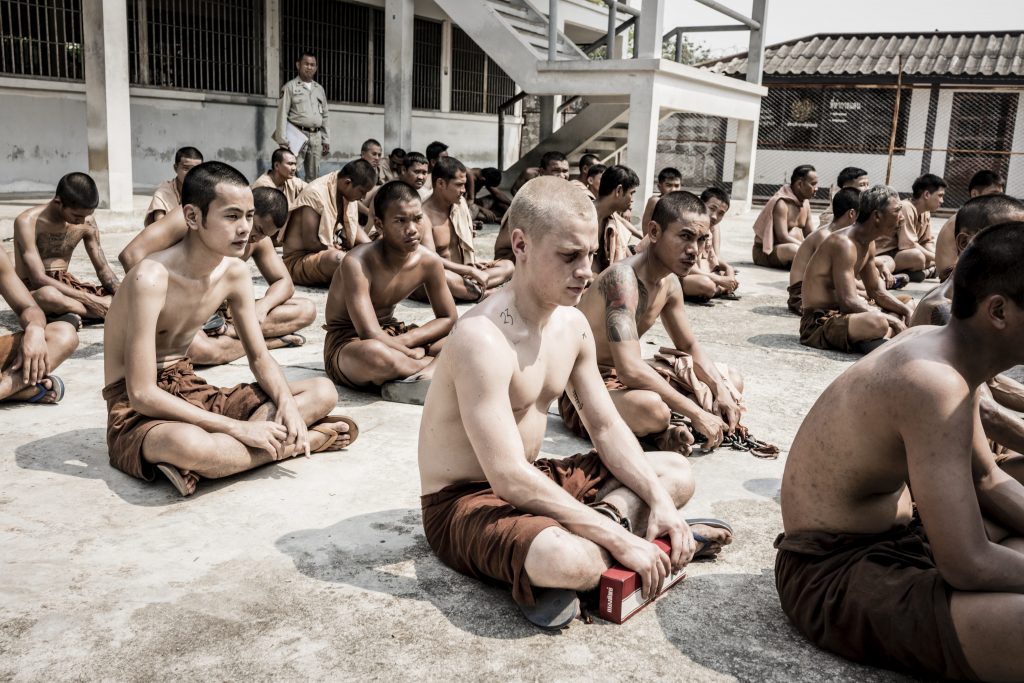
Gig Patta: Well, that’s why I wanted the assignment because I wanted to see how you portrayed the Thai prison system. I thought that was quite eye-opening.
Daniel Roby: Did you know about it? Are you from Thailand? Where were you born?
Gig Patta: I was born in Bangkok, Thailand. I was raised in the United States. I’ve heard about the Thai prison system.
Daniel Roby: You think it sounds realistic? I don’t know if you’ve seen it. There’s only one documentary that you can find on YouTube that was a BBC documentary about the Thai prison system. It’s called The Real Bangkok Hilton. You can find it on YouTube.
The way we did it, it is precisely the way it’s been described to us. We shot in a real Thai prison anyway, an hour away from Bangkok. We had consultants from real Thai jails. Hopefully, it was represented well. Also, we got it from the perspective of the actual guy who spent eight years in prison. From what I hear, we did it right.
Gig Patta: I’ve heard horror stories about it. I have never been to a Thai prison, but what I imagined was pretty spot on.
Daniel Roby: I didn’t want to make it too dark. Realistically, every day is hell. It’s in the long run, that is hard. I tried to make it as realistic as possible.
ALSO READ: The Mustang: Matthias Schoenaerts and Director Laure de Clarmont-Tonnerre on Prisoners and Horses [Exclusive Interview]
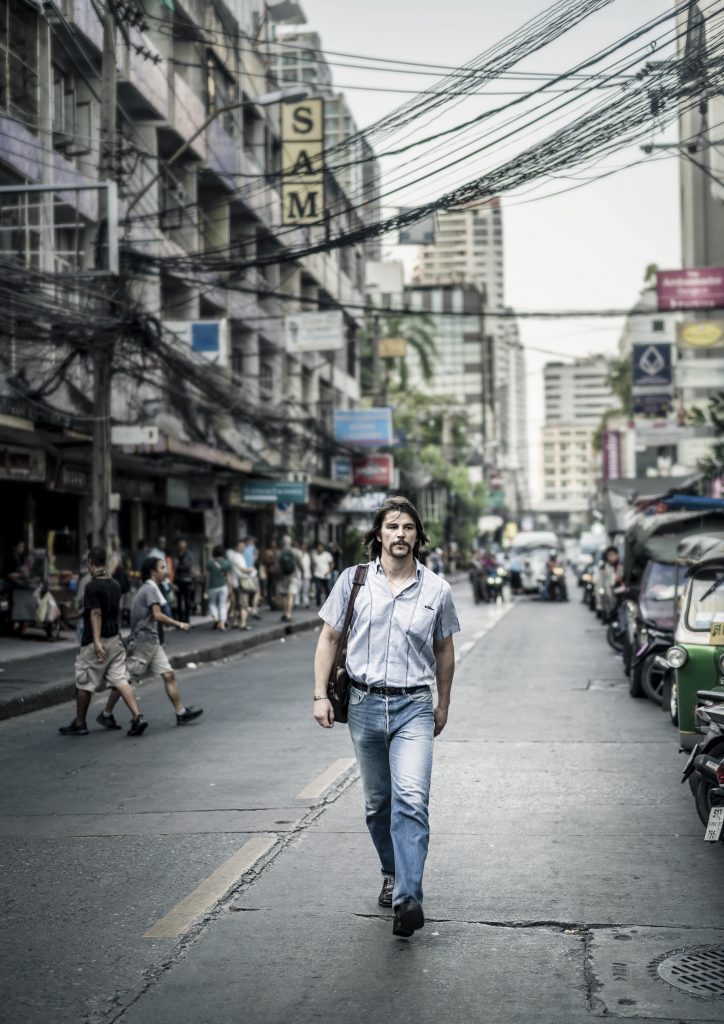
Gig Patta: I do have a question about Thailand. Thailand is a very tricky place to do films, especially with government involvement. How did you manage to pull this off?
Daniel Roby: The first thing I did was I went for two months as a tourist to visit the same real places where this story happened. Most of the story occurred in Chiang Mai. I went to Chiang Mai, and I visited the real locations like the back alley of the hotel. I took pictures.
After that, I went to Bangkok. I got in touch with a local producer there. We visited locations in Bangkok. I met with the general of the Thai Police Force. The real Victor Malarek had connections with people in Thailand. He wrote about this story. But, before that, he wrote a book called “Merchants of Misery.” It’s about the Golden Triangle. He knew people in the Thai government.
So I met with the general of the Thai police on my first visit. I asked them if they could help me get a production visa from the government. In this particular case, the Thai police didn’t do anything wrong in this operation. The only thing he wanted me to pay attention to was that the Golden Triangle was not only Thailand. It was Thailand, Myanmar, and Laos. In the movie, he wanted me to say that the Golden Triangle is not just Thailand. Then he helped with a letter to get the approval.
After that, we applied for the permit with the Thai government. They don’t mind that you tell the world they are hard on drugs in Thailand. They like that. Mostly, they asked to change two or three little mini-things. They didn’t want me to talk about the King in dialogue. It was minor changes that didn’t affect the story at all. So I said, “Okay.” I changed the two or three little mini things to be able to go to Thailand to shoot in the exact locations. Now it feels like Thailand, instead of a copy of Thailand somewhere else in Vietnam or Cambodia.
I prefer to go to Thailand because then I could get the Thai actors. The signs in the background could be written in Thai. I don’t have to change everything with the budget that we had. It was much easier for us to shoot in Thailand.
Gig Patta: I think you got fortunate that the Thai censorship didn’t have to change your script drastically. Did you change the script from the original story of some certain scenes? For example, the raid in Bangkok?
Daniel Roby: The raid in Bangkok was precisely the way it happened, though. They didn’t ask me to change it. No, I’m serious. They asked me to change was two lines of dialogue. They accepted everything. I was surprised myself.
Gig Patta: Was the raid precisely the same in the original story? To adapt this story for Most Wanted, did you make any changes at all, whether it’s in Canada or Thailand from the original story?
Daniel Roby: Well, yes. There were some things that I changed. For example, in the police, Al’s character was not the son of the Frank character in real life. He was a younger colleague that they recruited to join the team in the same way that we did. But, I created that family link there to make it more intense, so an audience understood the loss that they experienced. It makes it more intense if we see a family link.
So, it’s ideas like that I changed. Ninety percent of the whole story is my perspective of what I believe is the most probable unfolding of events that happened. If you ask the [Canadian] police that were involved in this, they will tell you that this whole story is all wrong. The way you see it is all false. Everybody has their version of what happened. However, I listened to everybody. I went to the court hearings for about three months. I heard everybody’s version from witnesses to the testimonies in court. In the end, I drew my conclusion. That’s what I show in the movie.
ALSO READ: The Tough Task of Putting Together A Documentary Of The Life of Danny Trejo [LRM Exclusive]
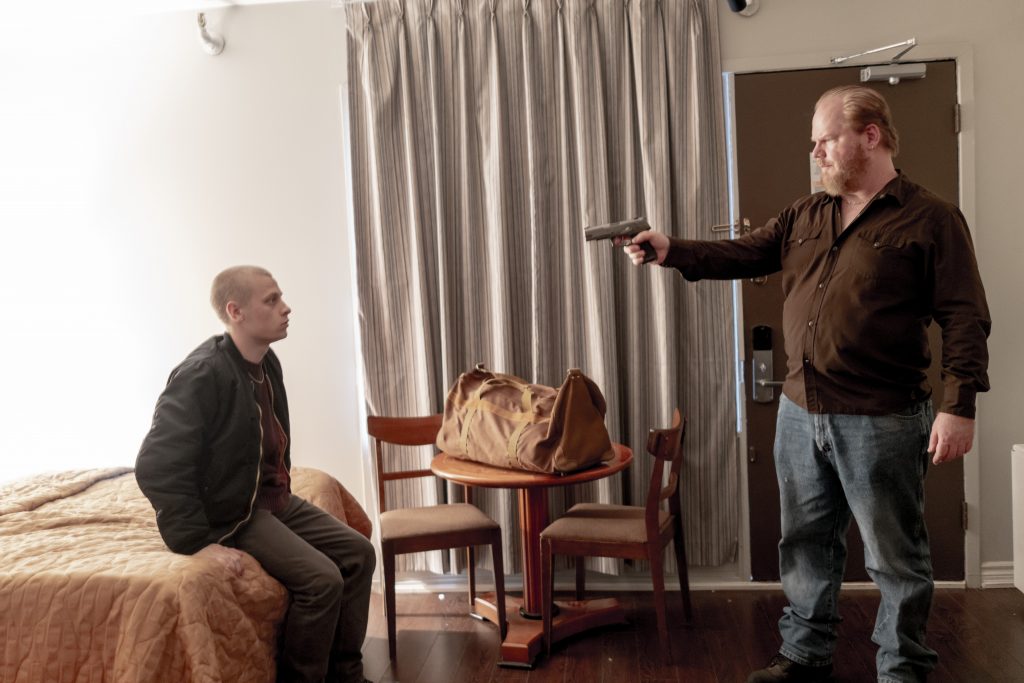
Gig Patta: The main people you’re probably most concerned about Victor Malarek and the actual victim represented in the film. How much consultation did they provide you? And did they approve?
Daniel Roby: Yes, they did. They didn’t have the power to approve the movie, but they were consultants. I had Victor Malarek, and Daniel Leger is based on a man named Alain Olivier. Both of these guys were with me the whole time. I could ask them questions, opinions, and details on how things unfolded. I tried to make it as accurate as I could, based on everything that they told me. They didn’t have a stamp of approval.
When they watched the movie, they liked it. They thought it was very close and as realistic as it can be. At the same time, the real truth of the real story happened over two years in the movie. I condensed it so that we can understand every little step of the way it happened.
Gig Patta: I have a quick question about the cast. Antoine [Olivier Pilon] is a French-Canadian, but you also brought in Josh Hartnett and Jim Gaffigan, who are Americans. Why did you go with a cast like this? You could have easily gone with the entire French-Canadian cast, right?
Daniel Roby: In real life, it wasn’t, though. Only Daniel Leger’s character was a French-Canadian. The story happened in British Columbia on a marina, on an Island in the West. In that part of Canada, everybody speaks English there. Victor Malarek works at The Globe and Mail in Toronto. Everything’s in English with everything in Thailand as well.
I needed to cast English speaking actors for the whole movie, except for Daniel and some people that he stumbles upon in British Columbia like other French Canadians living there or traveling. Most French Canadians are in Quebec. Everywhere else, it’s English. I didn’t care about where the actors come from. I wanted the right actors for the part.
Gig Patta: Forgot to ask. How and where did you first hear of this story?
Daniel Roby: Well, I read an article in a newspaper here in Montreal in December 2006. It was the first time I read about the story. As you can see in the movie, there was an article in 1989 and then a few more over the years. I had never heard about it until 2006–that’s the first time I read about it. Immediately, I was shocked by the story and thought I could make my second movie out of this story at the time. It took me about 13 years to release it. I had time to do three other films before this. Most Wanted ending up being my fifth feature.
After I read about it, I researched it for about a year. That’s because, in 2007, Alain Olivier sued the Canadian government in court to get state compensation for what they did to him.
Gig Patta: One more question to wrap things up, I know you’ve done a lot of French projects. This is much more of an English project. Now you also experienced Thai movie production. Are they all drastically different from you? Which type of production do you prefer?
Daniel Roby: Ultimately, I shot in many places. I’ve done a movie in Paris. Well, I’ve done a TV series in Paris with British actors. Then I’ve done French Canadian films. For this movie, I had a Thai crew overseas.
Over the years, I realized a movie set is a movie set. That’s the language that we speak in. When we were in Thailand, most of the crew worked on American movies or international commercials. Although there are slight differences in how they work, they were very professional.
We all got along so well. It was easy to speak cinema. For me, I’ve worked with a French crew in Paris and a Canadian crew. At the end of the day, as long as I get collaborators who are passionate about movie-making, then that’s the language on set. I feel at home anywhere in the world. That’s how I experienced it.
Gig Patta: Hey, thank you very much. I appreciate this. Daniel, I love the film.
Daniel Roby: Thanks so much. Thanks for taking the time.
Saban Films releases Most Wanted tomorrow in select theaters and On Demand.
Source: LRM Online Exclusive, Saban Films

 FOR FANBOYS, BY FANBOYS
Have you checked out LRM Online’s official podcasts and videos on The Genreverse Podcast Network? Available on YouTube and all your favorite podcast apps, This multimedia empire includes The Daily CoG, Breaking Geek Radio: The Podcast, GeekScholars Movie News, Anime-Versal Review Podcast, and our Star Wars dedicated podcast The Cantina. Check it out by listening on all your favorite podcast apps, or watching on YouTube!
Subscribe on: Apple Podcasts | Spotify | SoundCloud | Stitcher | Google Play
FOR FANBOYS, BY FANBOYS
Have you checked out LRM Online’s official podcasts and videos on The Genreverse Podcast Network? Available on YouTube and all your favorite podcast apps, This multimedia empire includes The Daily CoG, Breaking Geek Radio: The Podcast, GeekScholars Movie News, Anime-Versal Review Podcast, and our Star Wars dedicated podcast The Cantina. Check it out by listening on all your favorite podcast apps, or watching on YouTube!
Subscribe on: Apple Podcasts | Spotify | SoundCloud | Stitcher | Google Play

